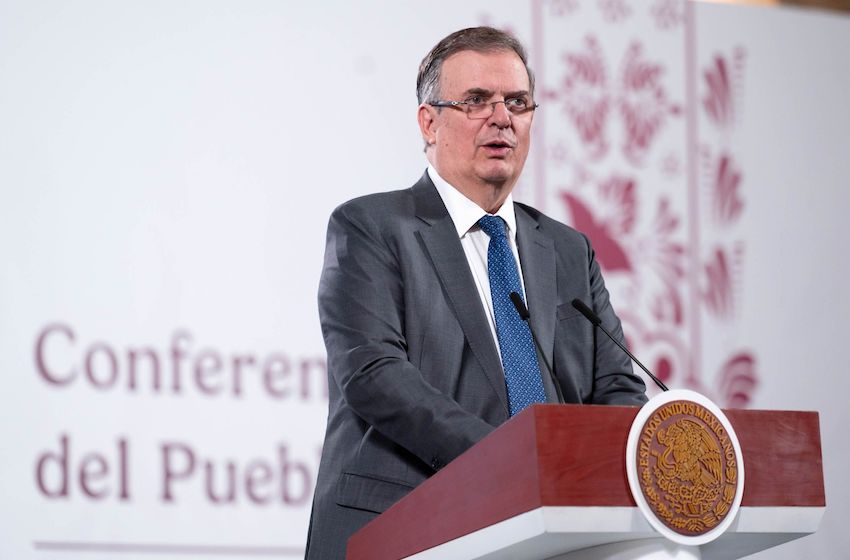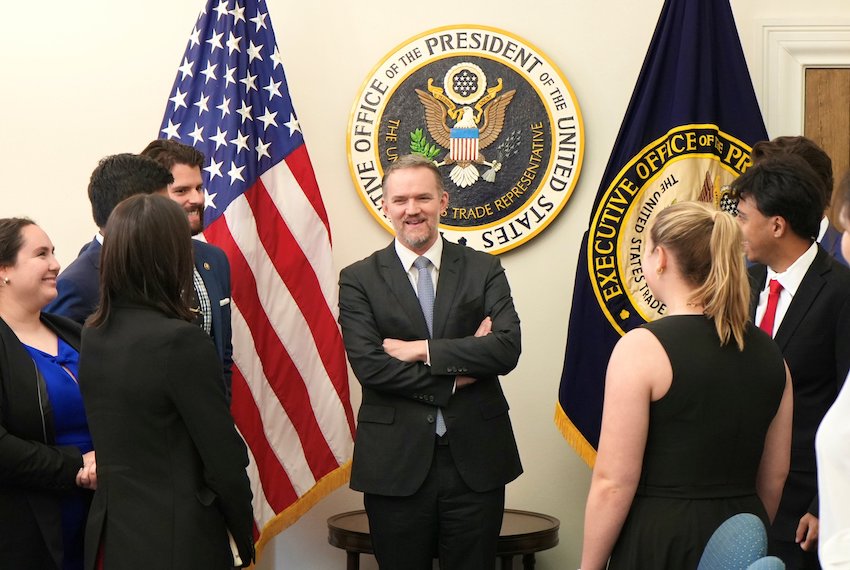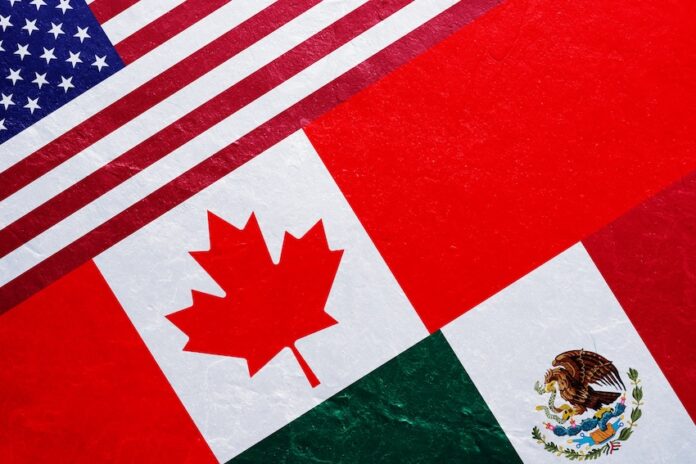Economy Minister Marcelo Ebrard said Tuesday that much of the negotiations during the 2026 review of the trilateral USMCA free trade pact will be bilateral rather than between Mexico, the United States and Canada.
His remark came after United States Trade Representative Jamieson Greer said that the USMCA negotiations will “probably” be more bilateral than trilateral.

Speaking to reporters at an event in Mexico City, Ebrard said that USMCA-related talks “always have high bilateral content for natural reasons.”
He said it is “inevitable” that the USMCA review will include bilateral negotiations, as there are distinct bilateral trade relationships within the framework of the trilateral pact.
“For example, we’re the main exporter of tomatoes [to the United States] and in contrast, Canada’s main export is lumber,” Ebrard said.
“… There are many bilateral issues on our part, not just with the United States but with Canada as well,” he said.
“With … [Canada], for example, we have many issues regarding mines, but there are also other [issues] that are trilateral, like the dispute resolution system,” Ebrard said.
“That’s probably what the U.S. trade representative was referring to,” he added.
Next year’s review of the USMCA will take place six years after the trade pact replaced NAFTA. During his first administration, U.S. President Donald Trump suggested that NAFTA could be replaced with two separate trade accords, one with Mexico and another with Canada. That obviously didn’t happen.
Trade between Mexico, the United States and Canada is worth nearly US $2 trillion annually, according to the USTR.
The USMCA trade pact has been significantly undermined this year by Trump, whose administration has imposed tariffs on a range of imports from Mexico and Canada, including steel, aluminum and vehicles.
Greer looks ahead to USMCA review
The United States’ Trade Representative Jamieson Greer spoke about the upcoming USMCA review negotiations during an appearance on Tuesday at the Economic Club of New York.
According to the news service World Trade Online, Greer said that “the U.S. expects coming negotiations about the future of the U.S.-Mexico-Canada Agreement to be conducted on a more bilateral basis as Washington seeks to address trade frictions with each partner.”
The newspaper El País reported that he said that the negotiations will “probably” be bilateral.

Greer’s participation in the New York forum came two weeks after Mexico and the United States put out calls for public comment on the USMCA ahead of its scheduled review in 2026.
On Sept. 18, President Claudia Sheinbaum held talks with Canadian Prime Minister Mark Carney in Mexico City, where the two leaders pledged to strengthen the USMCA.
United States President Donald Trump is unhappy that the U.S has large trade deficits with both Mexico and Canada, and has used tariffs to pressure the governments of the two countries to do more to stop the flow of narcotics, especially fentanyl, across their borders with the U.S. He has indicated that he wants to “renegotiate” the USMCA, not just review it.
Robert Lighthizer, U.S. trade representative during the first Trump administration, has indicated that the revision of the USMCA “will be far tougher than most investors and strategists expect,” according to Bloomberg columnist Juan Pablo Spinetto.
“That was my takeaway after hearing the former U.S. Trade Representative speak this week in Mexico City to a group of business leaders, academics and government officials,” Spinetto wrote in a column published last Friday.
“What was meant to be a routine six-year revision of the treaty, in force since 2020, is quickly morphing into a full-blown renegotiation, one that will demand exceptional patience and negotiating skills from Mexico if it hopes to reach safe harbor,” he wrote.
In a report published last month, the United States Department of State said that the Mexican government has not issued USMCA “implementing regulations in several areas, according to investors, complicating the operating environment for the telecommunications, financial services, and energy sectors.”
With reports from La Jornada, El Financiero and El País
